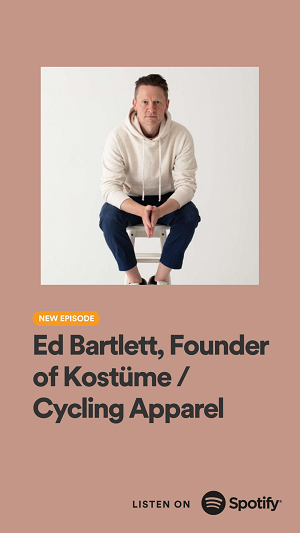1
HOME > Stockists >
IN CONVERSATION WITH… LESLIE DOCHERTY
FAT BUDDHA - 10 YEARS OF MEN’S URBAN STYLE
Written by Menswear Style in Stockists on the 4th December 2015
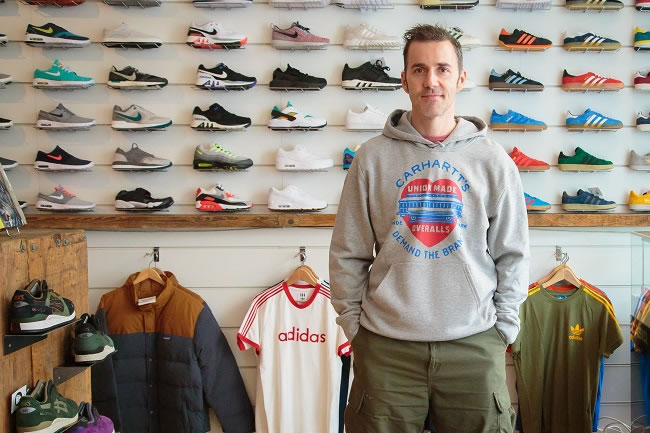
A lot can change in ten years, and nowhere is this more apparent than in the fashion industry. The constant flux is part of what pulls us into following fashion, and into reading and writing about it. But what about those who decide to make a living selling fashion? Fat Buddha Store is an urban clothes boutique in Glasgow’s city centre that specialises in menswear. It has recently turned ten years old and its founder, Leslie Docherty, is here to talk about the journey.
What made you decide to set up Fat Buddha Store ten years ago?
“Folly or Naivety, a belief that it couldn’t be that hard (It turned out to be pretty hard). At the time, Glasgow did not have a store that carried the range of products that we do, in fact Scotland didn’t have it, so we decided to do it ourselves, family-owned and family-run.”
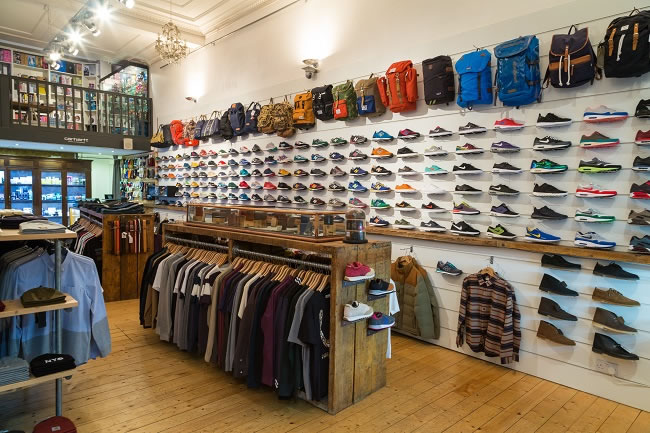
What was it like ten years ago and how do you think it has changed over the years?
“The urban scene has gotten much bigger, so the high street is no longer the best place to shop for streetwear. It has become a real battleground to get access to the key brands as they prefer to deal with the big boys.”
Why do you think the urban menswear scene has exploded in recent years?
“Social media is the platform that drives the whole scene, everyone has access to it and brands know how to keep promoting products through it. Instagram and celebrity endorsements have a lot of influence, and the rise of well-written blogs now educate consumers on a completely new level.”
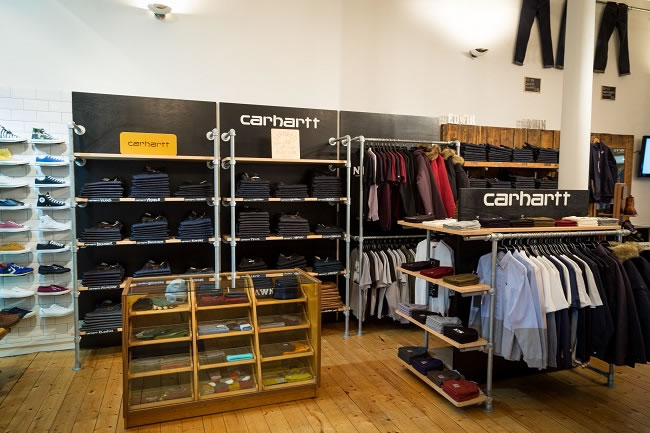
Are there any brands that have been more influential than the rest?
“Carhartt leads the way, every season it improves on its predecessor. It knows how to play to its strengths and continues making democratically priced, well-made quality clothing. The customer knows his exact fit, and every season buys a few more pieces. With Carhartt there are no bad seasons, just a consistency that many other brands try to replicate. Also, when it comes to denim, Edwin is the king. If you read the brand’s history, it is responsible for so many firsts in the denim area, and as far as authenticity goes, you can’t get much better value for money than their products.”
Do you think the rise of internet shopping has improved the way men shop for clothes, or is there no substitute for the in-store experience?
“When it comes to trying clothes on, the store is the place to be. Something that might look OK at first, might seem totally different when you try it on. For instance, shoes might be a bit bulky, or denim too tapered, or a jacket that looked great on the hanger might be too short, and so on. Whereas online, it’s either a limited release hyped product or sale product that people go looking for. Consumers can search for any item online and someone somewhere will be selling it 15% less than you, with free shipping. This is obviously great for the customer but not great for margin.”
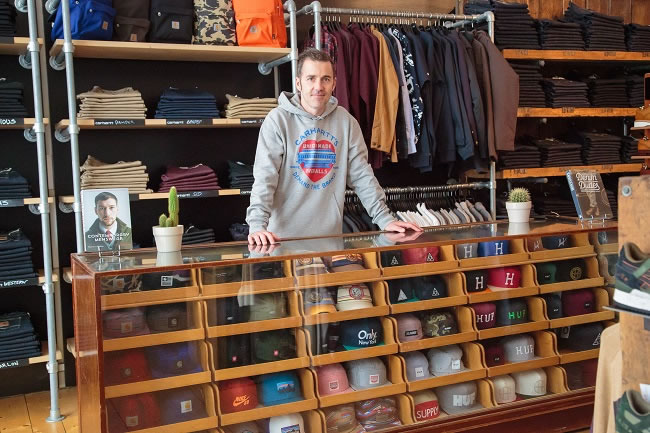
A lot of people think that men and women have very different shopping styles. Have you noticed anything specific about the way men shop for clothes?
“Yes, some men don’t even try items on, they know they are a medium, so they buy this size regardless. Also, men are not as clued up about whether an item fits well or not. Whereas when we have female shoppers they may try on nine pairs of trainers and not buy anything - as they tend to have more specific ideas about how something should fit.”
What are your favourite menswear brands?
“My personal favourite is Patagonia, purely down to their eco credentials, they were the first company to use only organic cotton, first to use traceable Down in all their jackets, and first to donate 1% of their turnover to charity and actively participate in the destruction of old dams. If you read what they are about, you’ll probably be left in awe. Customers love this as well, and for this reason you usually find that the Patagonia customer is very loyal.”
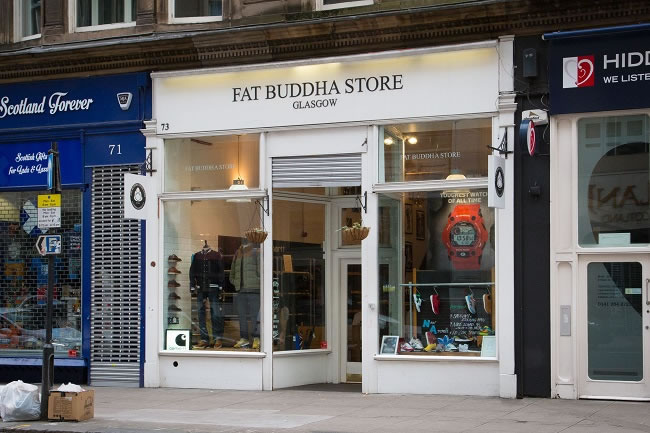
The Fat Buddha Store gets hold of some incredible exclusive trainers. Are you expecting any new arrivals that our readers should look out for?
“We recently had the Le Coq Sportif Glacial shoe which sold out in two hours. Next up we have the ‘Irish Coffee’ pack from Saucony, three shoes that cover the key elements of Irish Coffee, Coffee, Whisky & Cream and are expected to sell out on the day. They have been designed in great colourways, and with an amazing buttery suede materials on a clean white mid-sole and gum outer-sole. They are using the Shadow 6000 shoe, which is always a popular choice.”
Urban fashion has been around for quite a while now; how do you foresee it progressing over the next ten years?
“A period of stabilisation will happen, a lot of smaller brands will disappear and the big ones will get bigger, new brands will appear and the brands with hype will eventually go pop. In London and the clued-up areas, small artisan brands can survive, but in your quieter areas the consumer is more likely to be a brand-driven person who wants a recognisable logo.”
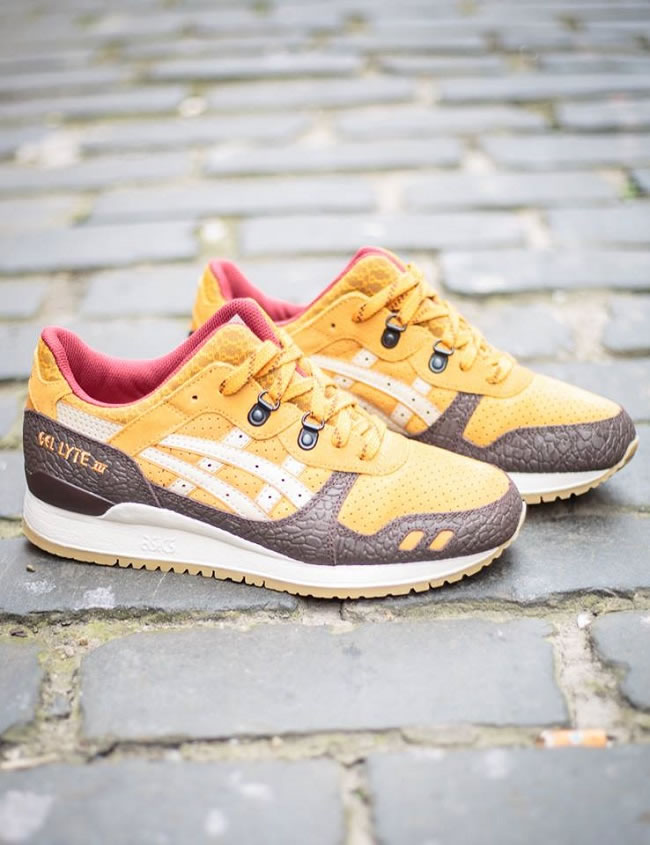
What advice would you give to someone planning to start up their own urban fashion store?
“Think carefully, make sure the business can support a good bricks and mortar store, don’t rely on ecommerce as this field is very competitive and the big guys are constantly growing. You will need at least £50k just to get started, then you’ll most likely need another £30k within 12 months to stay afloat, and then another £20k along the way. So overall you’re looking at £100k and once the money is in the business, trying to free it up is an impossible task as your cash flow is always going to be tight, and you are always going to have humps when all your invoices become due and keeping stock moving is a battle. Entering retail is not always fun, but it is nevertheless rewarding. The climate has changed massively - be prepared to put in long hours, have great USP’s, and engaging social media campaigns.”
Trending
2
3
4
5
6
7
8
9
10



